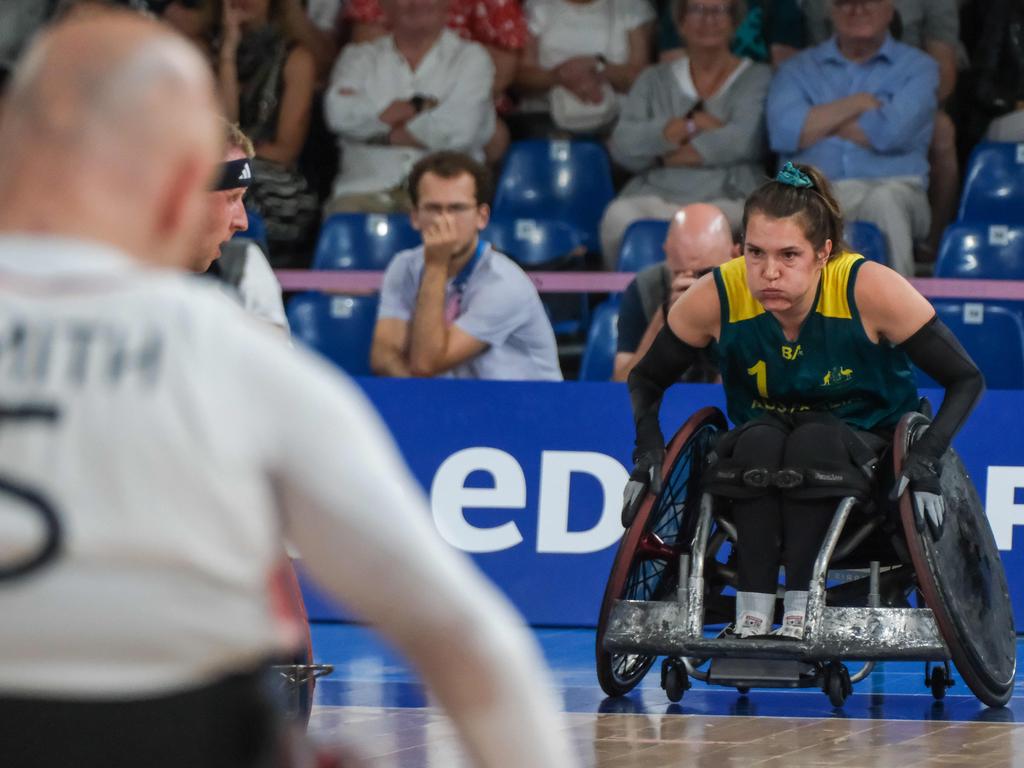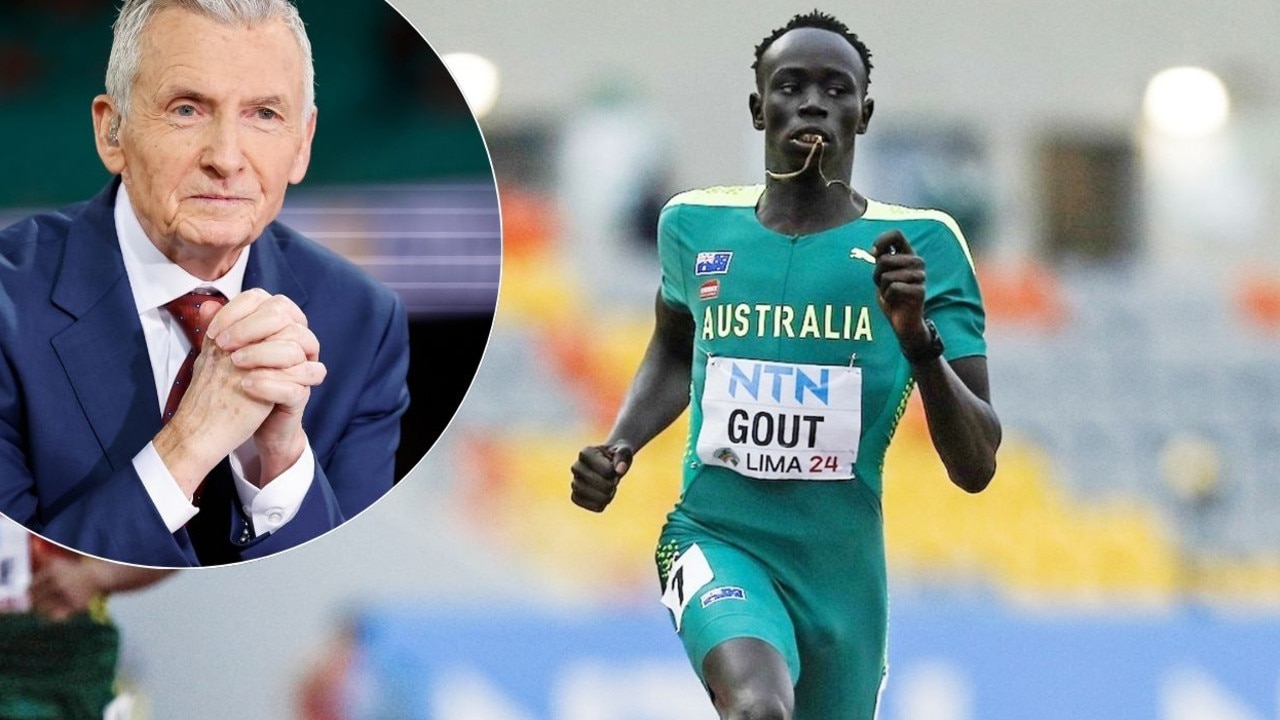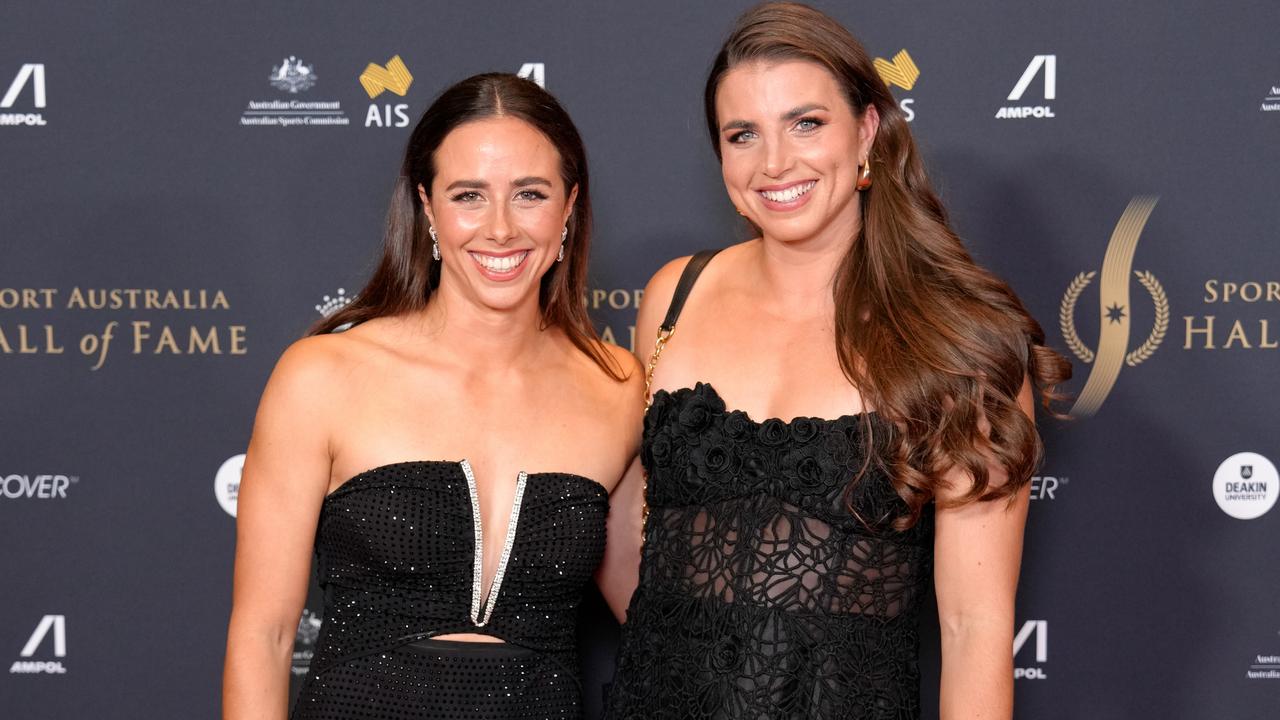‘We could have won that race’: Jaryd Clifford to appeal 5000m disqualification
Australian athlete Jaryd Clifford wept on the track after being disqualified from his bronze medal at the Paris Paralympics.

Australian Jaryd Clifford wept on the track after being disqualified from his bronze medal at the Paris Paralympics. Clifford crossed the line third in the 5000m T13 at Stade de France before the visually impaired runner was DQ’d for dropping the tether he shared with his guide.
“Finding out about this DQ, I don’t know – there are a few fundamental rules in guiding,” Clifford said.
“The tether can never be dropped – we didn’t drop it – and I have to cross the line first. The team are pretty certain I crossed first. I’m pretty shattered, to be honest. We went in with the aim of winning gold … I think we could have won that race.”
Clifford is yet to win a Paralympic gold. “We will appeal and if we win that I’ll have a Paralympic medal, but it won’t be gold,” he said.
“I hope this is not like a monkey on the back and we can shake it as soon as we can. Jinxed? Maybe. To not win a medal will be even more shattering, for sure. I went to see Mum and Dad, and my girlfriend, and broke down and cried on the side of the track. That was my grieving moment out on the track. I’m probably still a bit numb right now.”
Michael Roeger ran a heck race to take silver in the 1500m T46. On a morning so overcast the floodlights were on at the moody, imposing Stade de France, Roeger bolted to a huge lead and attempted gallantly to hang on in front of a deafening crowd … only to be overtaken in the final 50m by Russian Aleksandr Iaremchuk.
The 36-year-old Canberran, born without the lower part of his right arm, was the second Australian on the podium in an hour after Madison de Rozario claimed bronze in the 5000m T54. Roeger gave it his all, and perhaps a sprinkling more, by leading from start to 50m to go. He posted 3min 51.19sec to be pipped by Iaremchuk’s 3:50.24.
De Rozario, for all intents and purposes the face of the Australian team, finished a distant third in the first of her three races in Paris. The marathon specialist clocked 11min 10.2sec in the 5000m T54 to trail Switzerland’s Catherin Debrunner (10:43.62) and American Susannah Scaroni (10:45.18).

Clifford was born with Juvenile Macular Degeneration, which is basically the opposite to tunnel vision. He has decent peripheral vision but cannot see what is directly in front of him. Hence the need for a guide while running.
He says of his journey: “When you’re surrounded by people that assume you can’t do something, you start to believe it, even if it’s not true. Running for me changed my life. It was probably the thing that let the shackles off with how I viewed my disability.
“I consider my vision impairment a massive blessing. It’s potentially given me the biggest gift that I’ve received in my life. All we need are people that when they see us, they assume possible rather than impossible, they assume that we can do something, rather than that we can’t do something.”
He adds: “The opportunity that the Paralympic movement has is that it shows what people with disabilities can do when they’re given the support. If we can take that example and spread it throughout society, then imagine how much better this world would be. I think that just starts from the assumption of can rather than can’t.”





